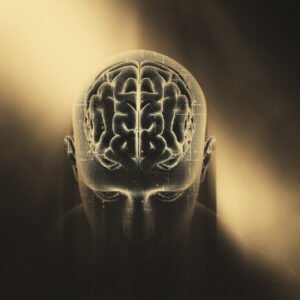Table of Contents
ToggleIntroduction:
Beyond its rich aroma and bold flavour, Coffee has become synonymous with productivity, alertness and even creativity. An average coffee lover cannot start the day without a cup of their favourite brew. They also don’t believe in the idea of drinking too much coffee. However, it is necessary to find a balance between enjoying a cup of coffee and overindulging – this is crucial for maintaining optimal health.
While coffee has many health benefits, like anything else, you can abuse it if you don’t drink it in moderation. In this post, I delve into the side effects of drinking too much coffee, exploring its potential benefits, the importance of moderation, and the pitfalls of excessive caffeine intake.

Is Coffee Good for You?
Before going into the side effects of drinking too much coffee, let’s recall some of coffee’s health benefits. Coffee is rich in antioxidants and associated with a reduced risk of certain diseases like Parkinson’s and Alzheimer’s.
Coffee also enhances cognitive function, boosts mood, and improves physical performance. Still, like any good thing, moderation is key.
When it comes to coffee consumption, moderation is important. Moderation doesn’t mean complete abstinence but a conscious effort to consume coffee within healthy limits. The ideal amount will depend on various factors from person to person – factors like age, health status, and individual sensitivity to caffeine also play a role. Mindfully consuming coffee is a habit anyone can develop with practice.

Effects Of Drinking Too Much Coffee
Sleep Disturbances: Caffeine’s interference with adenosine (the neurotransmitter responsible for inducing sleep) can lead to insomnia and disrupted sleep patterns. This is one of the primary concerns associated with drinking too much coffee. To minimize these effects, you can create a cut-off time for your coffee intake, allowing your body sufficient time to unwind before bedtime. A coffee lover suggests no more coffee after 3 pm. You can also experiment with decaffeinated options in the later part of the day to strike a balance between enjoying your coffee and having a restful night’s sleep.

Cardiovascular Impact: While the temporary increase in heart rate after consuming coffee is non-threatening, it is important to be mindful of the potential risks associated with excessive caffeine intake. Coffee lovers with cardiovascular conditions are more prone to these effects. Consistent health check-ups can help you make informed choices, ensuring that you enjoy your coffee without compromising your heart health.

Digestive Issues: Coffee’s acidity can create digestive problems like acid reflux and an upset stomach, especially when consumed on an empty stomach. Awareness of your tolerance and making reasonable choices, such as enjoying coffee with or after a meal can help prevent these digestive issues.

Dependency and Withdrawal: Consuming coffee excessively can lead to caffeine dependency which makes reducing consumption harder than it needs to be. This can lead to withdrawal symptoms. If you suffer from withdrawal symptoms, gradually reducing caffeine intake can allow your body to adjust without withdrawal effects like headaches, irritability, and fatigue.

Conclusion:
While there are side effects to drinking too much coffee, (and this varies from person to person), there are also health benefits to drinking coffee. Moderation, of course, is important in coffee consumption. Is coffee good for you? The answer is not a straightforward yes or no as individual needs and health status matter.
By mindfully consuming coffee, you can escape the side effects of drinking too much coffee – sleep disturbances, Cardiovascular Impact, Digestive issues, Dependency and Withdrawal – allowing yourself to savour the rich aroma and flavour of your beloved brew without compromising your well-being.

esewalter
Mom | Yoga Teacher | Coffee Blogger | Legal Mind. I explore coffee's journey from farm to cup and especially how you can start your home brewing journey.




